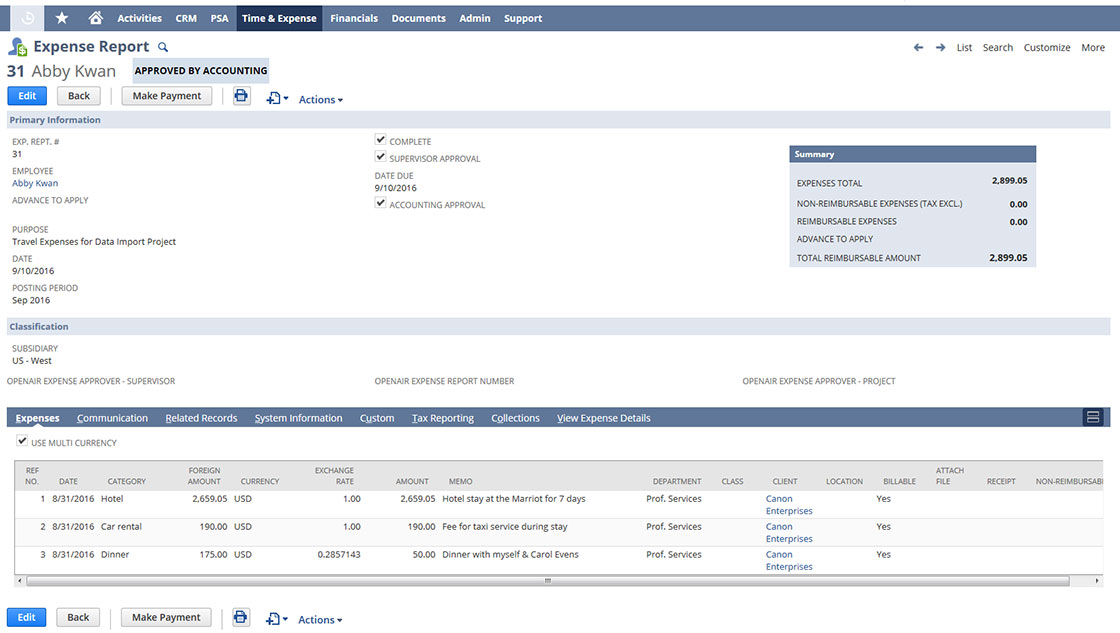Expense Management
Support Your Services Organization End-to-End with a Powerful, Cloud-Based Suite
Maximize Accuracy and Timeliness of Your Expense Processes
In a billable services organization, expense management is critical. To maximize the accuracy and timeliness of expense reporting and overall expense management, this process should be as easy and flexible as possible for users and connect directly with project management and project accounting.
NetSuite Expense Management offers powerful features that improve productivity, enable better tracking and compliance, maximize the accuracy and timeliness of expense reporting and enhance the overall experience.

Capture all expenses with NetSuite’s simple interface and ensure every entry is accurate. Flexible workflow enables efficient approvals.
Features
Flexible, Accurate Expense Entry and Reporting
Customize business rules for expense management, consolidate expenses from multiple projects into a single expense report and create and submit expense reports from mobile devices.
Advanced Expense Approvals and Workflows
Track expense reports through submit/approve lifecycle, view an auditable system history for each report and create overdue expense report approval alerts.
Simple, Straightforward Interface
Expense reports are one of the highest touchpoints of your Professional Services Automation solution. By designing a simple, easy to learn interface we make this weekly task easy, improving adoption and accuracy.
Benefits
Powers Employee Productivity
Submit expenses from anywhere—via web browser or mobile device. Photograph receipts with an iPhone.
Flexible and Customizable
Customize workflows and approval processes to meet your unique business, project accounting and expense management needs.
Increase Accuracy and Efficiency
Increase accuracy by integrating Expense Management with Project Management and NetSuite ERP to eliminate double entry of expense reporting data.




























